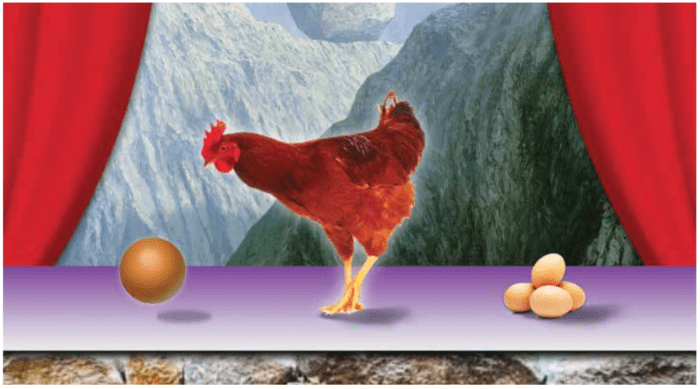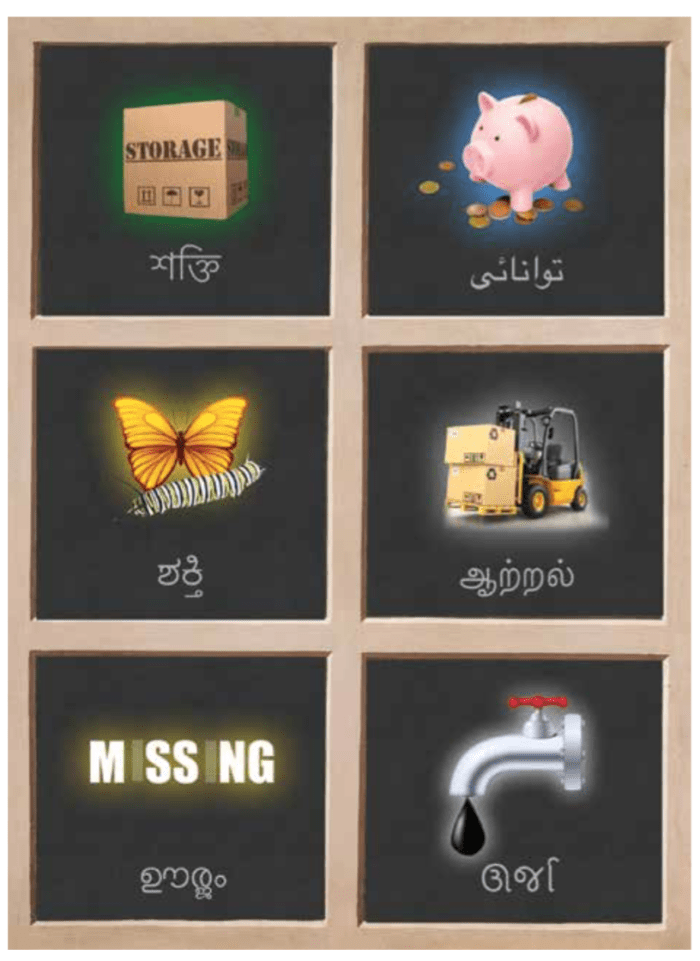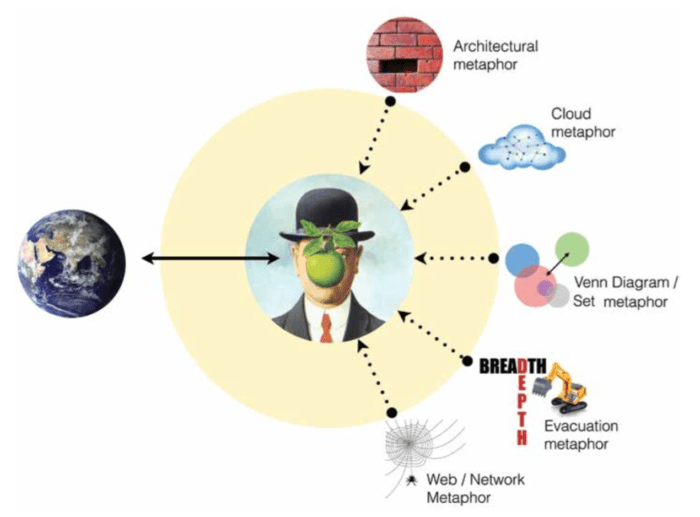180-degree rotational ambigram for “metaphor.”
I have been (co)writing a series of articles for iWonder: Rediscovering School Science, a journal for middle school science teachers, published by the Azim Premji University. (Previous articles in this series can be found here, the most recent article can be found below, and the complete current issue can be found here.
Mashood, K. K., Mehta, R., & Mishra, P. (2018). To see a world: Using multiple metaphors in science education. iWonder. (1) p. 48-52.
Abstract: As educators, we need to know that new learning is constrained and framed by our prior knowledge. Metaphors offer one way to harness this to our advantage. In this article we focus on a strategy of using multiple metaphors to explain complex scientific ideas, grounding our discussion in one specific example — that of teaching about energy.


Fig. 1. The seduction of using single metaphors: using just one representation reduces the complexity of a rich idea. Inspired by Variante de la tristesse by Rene Magritte.
Fig. 2. The six metaphors for energy, inspired by the painting The key to dreams by Rene Magritte. Essentially each of the images in the frames represents a different metaphor for energy, and the words below these images spell “energy” in different Indian languages.

Fig. 3. Multiple metaphors of knowledge in understanding the world, inspired by iconography in Magritte’s painting.




0 Comments